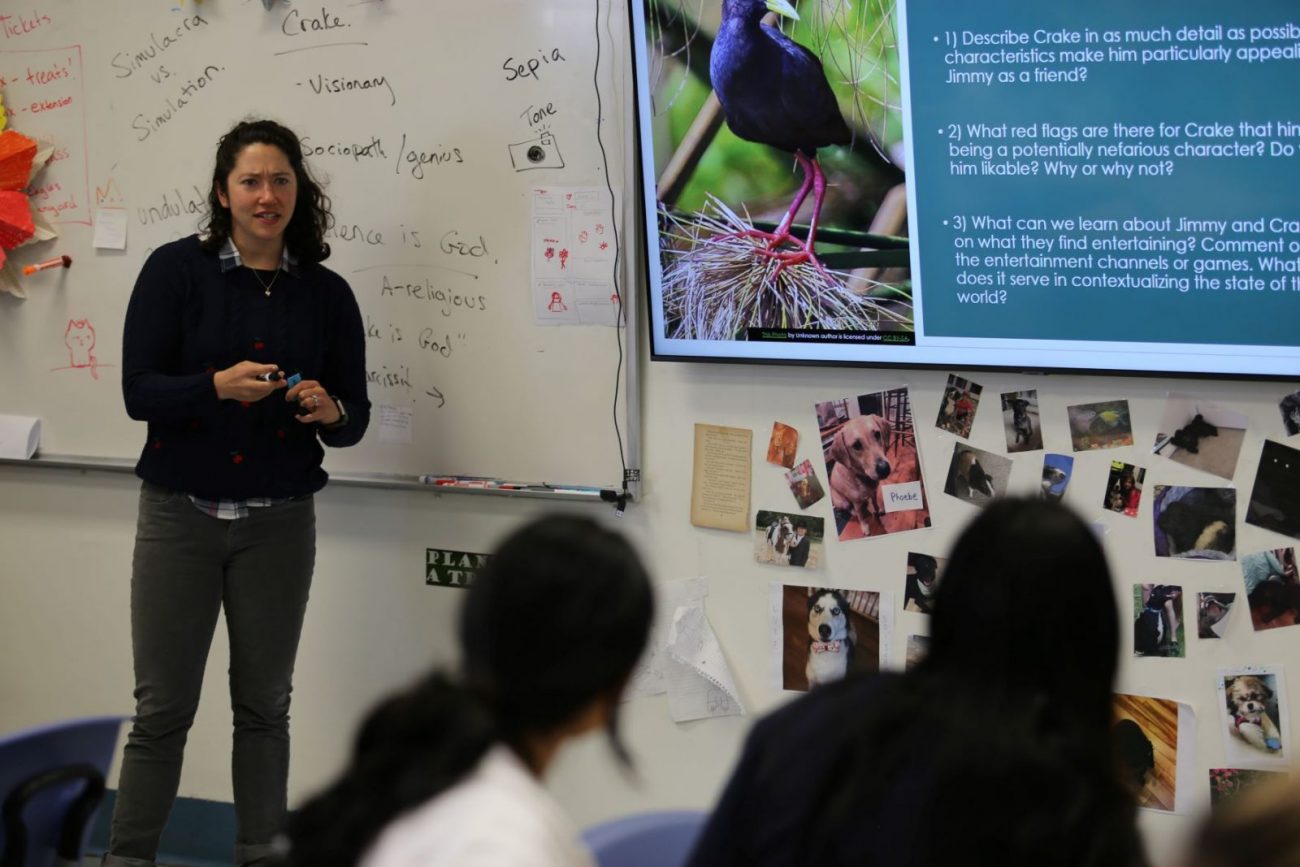Students Explore Concepts of Nature in Environmental Literature Course

By Vani Hanamirian ’22, Marketing and Communications Department Student Intern
The MFS English Department offers “Honors Environmental Literature,” a unique one-semester course available to juniors and seniors taught by Avery Stern. The class adds a spin to the typical English curriculum tackling social issues and challenging creative minds.
Students explore the concepts of nature while also digging into deeper issues. “I think a lot of time classes are separated; there’s English, and there’s science,” explained Ms. Stern. “I, at the root of it, am a science nerd, but just happened to end up teaching English. This class blends the two things I’m very passionate about. Many times students align themselves with one or the other, but this class is a way to sort of blend the two.”
This is the second time Ms. Stern has taught the course and she has enjoyed refining and improving the course this time around. “I spent a huge amount of time two years ago doing research on this topic,” she said, adding that research and course development was aided by a Curricular Innovation Grant she received while she was still teaching at George School.
Ms. Stern likes to include non-traditional teaching methods. An example would be writing a controversial topic on the board and inviting students to debate the topic. She also enjoys group discussions and analyzing popular movies and assigned books.
“It helps me learn in different ways,” said Nia Hipps ’22. “I’m not used to Ms. Stern’s teaching style but I am starting to love it.”
The class has covered topics such as environmental racism, environmental justice, colonization, oil drilling, and more.
“I think the topics are interesting, and I like how Ms. Stern ties diversity into environmental literature,” said Nia, who is also the Upper School Diversity Co-Clerk.
Students have enjoyed the conversation and subject matter.
“We have really good group discussions, and there are so many issues that a lot of us didn’t really know about before taking this class. We watch videos that explain what’s happening in the novels we are reading, but in a bigger sense. For example, we learned about fracking and different villages that are taken over by big companies,” Esha Patel ’23 explained.
The ability to use writing to make a difference is something Ms. Stern tries to convey to her students through this course. “Literature and storytelling is the best way to make an impact.” she said. “We learn about environmentalism from a scientific perspective, and I think it can be overwhelming. I want this to be a place for students to realize how writing and storytelling can help bring attention to environmental issues affecting our communities.”
